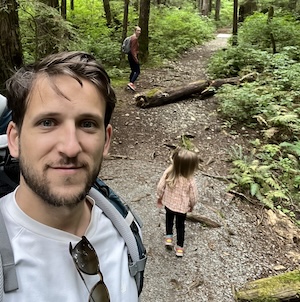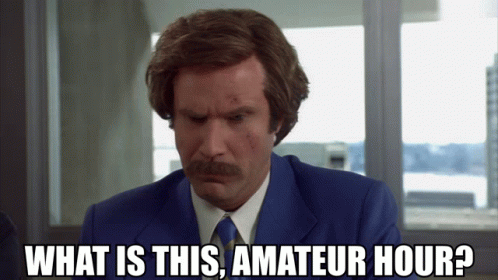
You Don’t Need To Excel at Something To Do It…and Enjoy Doing It
- Published on
- Authors

- Author
- Toby Luxembourg
Learn to be detached from the results.
We need not be experts to enjoy learning or doing something. We are raised in a culture of achievement where everything we undertake must potentially lead to some sort of remarkable success. We are discouraged from following the passions that may lead us down paths of ridicule. Rubbish. If you enjoy acting and suck at it, keep doing it! We are human beings, not human doings.
Failure, in the performance-based evaluation, is not to be sought but feared. And yet, we learn by failing. Fear of failure slowly depletes the pleasure we get from activities we are not good at, even if we initially enjoyed doing them. Half the things I build don’t work and yet I am content and draw pleasure from the process. Starting my winning NASA/CSA project was first and foremost an effort to learn electronics, something that seemed daunting and I knew little about. One year and a half later, I am still a complete noob at it but I thoroughly enjoy learning about it. I get to work with team members who know far more than I do (they have degrees or masters in engineering fields) and I never feel ashamed to be a beginner compared to them. In fact, it is extremely motivating to learn around experts who treat me like a peer, no matter how many sensitive electronic components I’ve burned! (Joke aside, I haven’t burned that many)
When you set out to do something for enjoyment instead of performance, you invite more play into it, testing new things as only a newcomer could (experts may tell you that it’s silly). And yet, this often can give you insights and a greater appreciation for domains that some experts have lost fascination for. Focusing on the enjoyment of an activity does not set aside discipline, which is required to get better at anything. Often, the things we most want to do, we push away the farthest. We want to draw, but never make time for it. We want to learn a new sport, but do not register ourselves for a class (or try alone!). We want to sing and do not practice. It may sound counterintuitive, but we must rigorously set time aside for play. Life cannot be all serious, and while our jobs often require us to put the fun aside, learning something that you want to learn should automatically invite play. Leave play behind, and it will quickly grow boring.
Shame is often a companion of those who pursue the performance-based approach. They think that “if I do not do well, there is no point trying”. Performance comes to define who they are. If they fail at something, it is because they are a failure. I am familiar with this mindset as I harboured it for many years. An effective method to pry open these cans of lies is cognitive behavioural therapy, see my other blog How Cognitive Behavioural Therapy Helps Me. To me, a growth mindset is one where challenges purvey material for your own development, whether the experience is pleasant or unpleasant. Success is defined by your own interpretation. Failures can feel deeply satisfying when they arise facing one of your greatest fears or pursuing one of your passions (at which you may suck at and still love doing). The attempt becomes more important than the end result. And in any case, the more failed attempts you have, the more you will improve. Refraining from trying something you have always wanted to try, for the sole reason that you would not be good at it is nonsense. Really, it is true. You will likely be really bad at it the first time. However, you will improve a bit on the tenth time. By the hundredth time, you may have learned to enjoy failing at it because it is an activity you inherently enjoy. By the thousandth time, you may actually have gotten pretty good at it. The only way to remain bad at it (and maintain regrets), is to never try. And try you must, on a regular schedule, especially when you are first learning to do something you are not good at. Do it with discipline, and soon enough, you may step over your discomforts and may begin to simply enjoy the learning process no matter the outcome.
To conclude, there is no need to excel at something in order to do it, and most importantly, to draw pleasure from it. Learn to be detached from the results of what you are doing and you will find yourself delving into many interests you have that you were always afraid to explore. At the end of the day, your newly explored passion may drive you like a locomotive to learn so much about it that you may eventually excel at it. So don’t despair, and go set time aside to learn something you have always wanted to learn…but were too afraid to.
Most successes are unhappy. That’s why they are successes-they have to reassure themselves about themselves by achieving something that the world will notice… The happy people are failures because they are on such good terms with themselves that they don’t give a damn. — Agatha Christie
